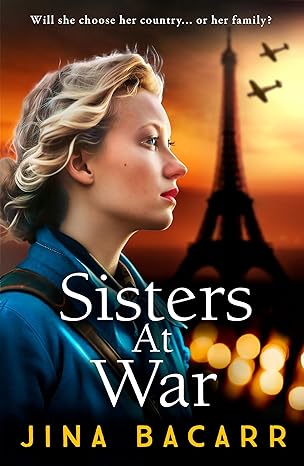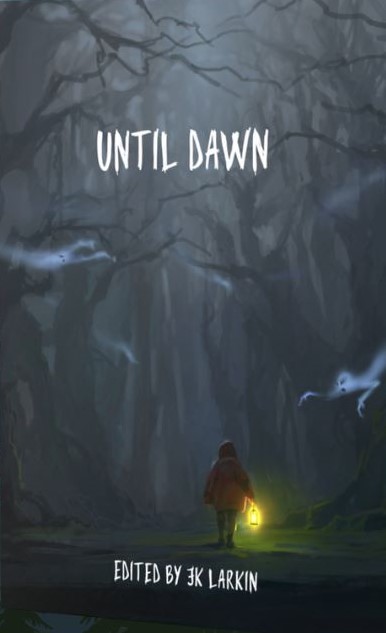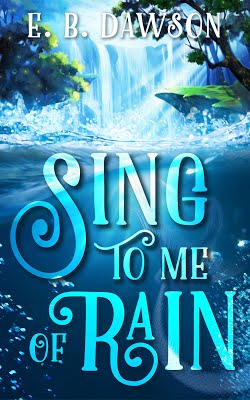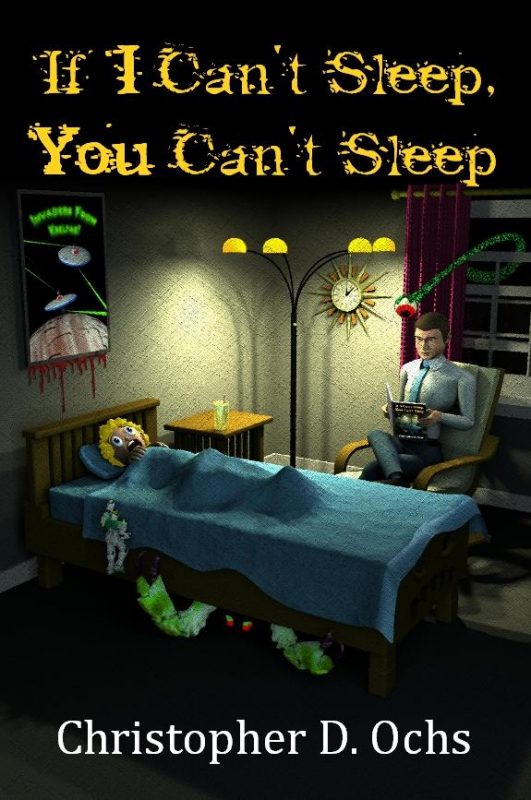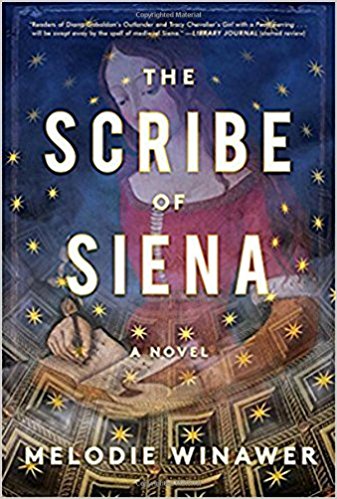August Already
August 6, 2013 by Linda O. Johnston in category Pets, Romance & Lots of Suspense by Linda O. Johnston tagged as 2013 National RWA Conference, Harlequin, Linda O. JohnstonI want to thank our delightful prez, Louisa Bacio, AKA Marie Loggia-Kee, for putting my picture up on her blog post this month on A Slice of Orange. Yes, I was at RWA National in Atlanta and had a wonderful time. I came back inspired, with a whole lot to do, and I’ve dug into it with gusto!
I’m really excited about this month’s meeting, too. If it wasn’t enough to see some of the outstanding Harlequin editors at the national conference, we get to see two of them right here, at OCC, next Saturday. They’ll be discussing Publishing Strategy and Digital Publishing for You–both topics in which I’ve got a lot of interest, and I’m sure many of you do, too.
So… think about how you’re going to spend the rest of this year, and I hope to see you on Saturday!
Linda O. Johnston
http://www.lindaojohnston.com/
OCCRWA August 2013 Online Class: Symbols with Marcy Weydemuller
July 26, 2013 by A Slice of Orange in category ArchivesSYMBOLS
A Thought or two on Loglines and Mission Statements
July 19, 2013 by A Slice of Orange in category Archives tagged as MFRW, MFRW Summer Camp, Mona KarelNow how in the world do loglines relate to mission statements? It kind of surprised me when I realized the connection.
For a bit of background, I was participating in and helping with MFRW‘s great Summer Camp (check out Linda Mc Laughlin’s Blog for more information) Kayelle Allen asked me to take on a logline forum, since I do enjoy distilling a book down to twenty five words or less. On the same weekend I was working with a club on their ByLaws, starting with the Mission Statement.
A Mission Statement is a declaration of an organization’s purpose. Some are complex, conveying many thoughts; the best are direct and simple, describing the organization so clearly one has no doubt of their place in the world. Even better, these simple statements stick with us, and when we’re asked what that organization is all about, we have a clear answer.
What was that? A clear description. Direct. Simple. Something that will stick with us? Sounds like something else I’ve read about recently.
What do you think? Could the logline be the mission statement of our book?
When not pondering esoteric concepts, Monica writes and reads romance in various genres while living in the high desert wondering when or if it will rain.
http://mona-karel.com/
emaginings: Buffer for Writers
July 17, 2013 by Linda McLaughlin in category The Romance Journey by Linda Mclaughlin tagged as Buffer app, emaginings, Kristyn Phipps, Linda McLaughlin, Lyndi Lamont, Marketing For Romance Writers, MFRW Summer Camp, Social Media, TwitterWhile most everyone else was getting ready for this week’s RWA Conference in Atlanta, I went to camp instead. Well, MFRW (Marketing For Romance Writers) online Summer Camp.
If you’re not familiar with MFRW, I recommend checking it out. We have a dynamic group of writers led by the amazing Kayelle Allen, and ably assisted by Paloma Beck, Karen Cote, Kristyn Phipps, OCC’s own Monica Stoner, and a host of other generous volunteers. I’ve learned a lot from reading the MFRW Digests that come into my inbox.
At camp, I focused mostly on the social media classes, since I’ve been taking baby steps into that arena for over a year now. One of the classes was Buffer for the Hard-Pressed Writer, taught by Kristyn Phipps. I’ve had a Twitter account for over a year now, but hadn’t gone so far as to sign up for HootSuite or TweetDeck to manage my tweets, though there were times when I wished I had a way to space them out more. So I figured why not give Buffer a try, esp. since it’s also available as a smart phone app. It seemed like a good solution: a simple app that lets a user schedule tweets and FaceBook shares for release at specified times of the day.
You can sign in using your Twitter or Facebook account, then add a Buffer email and password. You have to authorize Buffer to access your Twitter, FB, Linked In or App.net account.
Buffer also has a section called Analytics that shows you the number of times someone Retweets, Favorites, Mentions, or Clicks your message and the Potential number of users that could be reached.
The Buffer staff is good at answering question via Twitter and the app will also email you to let you know when your buffer is empty. I haven’t had much time to play with it yet, but expect it will be quite useful.
Have you ever tried Buffer, and if so, what was your impression? Or do you use a different program to schedule your social media?
To those who are traveling to Atlanta, be safe and have a wonderful conference!
Linda McLaughlin / Lyndi Lamont
Websites: http://www.lindamclaughlin.com
http://www.lyndilamont.com
Blogs:
Flights of Fancy
Lyndi’s Love Notes
Facebook
Twitter
Novelists! Writing a Script? Read This
July 15, 2013 by A Slice of Orange in category Archives tagged as budgets, screenwriting, scripts
I’ve written 28 books. I am a USA Today and Amazon best selling novelist. I worked with New York publishers for 25 years. I launched an indie career three years ago. I have taught writing at the UCLA Writers Program, conferences and lectured to writing groups. I thought I was pretty savvy. I thought I could write anything. Then I met my Waterloo. I wrote a screenplay. Actually, I wrote two.
My first one was an original romantic comedy, Saving Seymour, and my second a psychological thriller based on Keeping Counsel, my USA Today bestseller. Both are in development, both have attachments, but the first one almost sent me to the cliff. Generally, what I learned during the process of writing Saving Seymour is as follows:
- Writing a screenplay is one of the most difficult things a writer can do.
- Listen to your producer if you’re lucky enough to have one. He/she truly does know what he/she is talking about even though they don’t write.
- When you’re done, don’t buy your dress (or rent your tux) for the red carpet. In the years it takes to actually produce a movie your tastes are bound to change.
By the time I wrote my second script, I learned a few specific things that made the transition from novelist to screenwriter a lot less crazy making. Here are the top five tips:
- Be focused. You have minutes to establish whose story it is and the tone of your script. The leisure of a novelist’s scene setting is out the window. Know who your hero is, what the arc is, where the story takes place and what is critical to the telling of the tale.
- Be brief. Keep direction to a minimum. Your job is to communicate the story with just enough force, intelligence and excitement that director and actors can interpret that story visually and orally.
- Be budget conscious. Okay, you’re not a line-producer, but you can make a difference as to whether producing your movie is attractive for investors. Keep set pieces to a minimum and you not only streamline the story, you streamline the budget.
- Be hyper-aware of dialogue. Dialogue needs to be natural, informative & evocative with an eye toward time conservation. Choose your words carefully. Rethink sentence structure. Tighten, Tighten. The reader of a book loses herself in dialogue; a moviegoer will be lost if you don’t get to the point.
- Show-don’t-tell. A sense of urgency can be communicated by showing a car speeding away than through dialogue urging a character to hurry. If there is a place where a visual will communicate more than dialogue, use it.
Visit me at: http://www. Rebeccaforster.com. Look for my books on Amazon.com (print & digital), iBookstore, Barnes & Nobel.com, etc. etc. (digital),or Audible.com. I’ll let you know the minute I get my dress for the premiers of Saving Seymour and Keeping Counsel. In the meantime, happy writing; stay sane.
Affiliate Links
A Slice of Orange is an affiliate with some of the booksellers listed on this website, including Barnes & Nobel, Books A Million, iBooks, Kobo, and Smashwords. This means A Slice of Orange may earn a small advertising fee from sales made through the links used on this website. There are reminders of these affiliate links on the pages for individual books.
Search A Slice of Orange
Find a Column
Archives
Featured Books
SING TO ME OF RAIN
An innocent naiad. A wounded boy. An adventure that will change their lives forever.
More info →IF I CAN’T SLEEP, YOU CAN’T SLEEP
Disturbed and Disturbing Bedtime Reading to Inflict on Naughty Children . . . Of All Ages
Five fairy tales and five short stories to perplex and disturb!
THE SCRIBE OF SIENA
The captivating story of a brilliant woman's passionate affair with a time and a place . . .
More info →Newsletter
Contributing Authors
Search A Slice of Orange
Find a Column
Archives
Authors in the Bookstore
- A. E. Decker
- A. J. Scudiere
- A.J. Sidransky
- Abby Collette
- Alanna Lucus
- Albert Marrin
- Alice Duncan
- Alina K. Field
- Alison Green Myers
- Andi Lawrencovna
- Andrew C Raiford
- Angela Pryce
- Aviva Vaughn
- Barbara Ankrum
- Bethlehem Writers Group, LLC
- Carol L. Wright
- Celeste Barclay
- Christina Alexandra
- Christopher D. Ochs
- Claire Davon
- Claire Naden
- Courtnee Turner Hoyle
- Courtney Annicchiarico
- D. Lieber
- Daniel V. Meier Jr.
- Debra Dixon
- Debra H. Goldstein
- Debra Holland
- Dee Ann Palmer
- Denise M. Colby
- Diane Benefiel
- Diane Sismour
- Dianna Sinovic
- DT Krippene
- E.B. Dawson
- Emilie Dallaire
- Emily Brightwell
- Emily PW Murphy
- Fae Rowen
- Faith L. Justice
- Frances Amati
- Geralyn Corcillo
- Glynnis Campbell
- Greg Jolley
- H. O. Charles
- Jaclyn Roché
- Jacqueline Diamond
- Janet Lynn and Will Zeilinger
- Jeff Baird
- Jenna Barwin
- Jenne Kern
- Jennifer D. Bokal
- Jennifer Lyon
- Jerome W. McFadden
- Jill Piscitello
- Jina Bacarr
- Jo A. Hiestand
- Jodi Bogert
- Jolina Petersheim
- Jonathan Maberry
- Joy Allyson
- Judy Duarte
- Justin Murphy
- Justine Davis
- Kat Martin
- Kidd Wadsworth
- Kitty Bucholtz
- Kristy Tate
- Larry Deibert
- Larry Hamilton
- Laura Drake
- Laurie Stevens
- Leslie Knowles
- Li-Ying Lundquist
- Linda Carroll-Bradd
- Linda Lappin
- Linda McLaughlin
- Linda O. Johnston
- Lisa Preston
- Lolo Paige
- Loran Holt
- Lyssa Kay Adams
- Madeline Ash
- Margarita Engle
- Marguerite Quantaine
- Marianne H. Donley
- Mary Castillo
- Maureen Klovers
- Megan Haskell
- Melanie Waterbury
- Melisa Rivero
- Melissa Chambers
- Melodie Winawer
- Meriam Wilhelm
- Mikel J. Wilson
- Mindy Neff
- Monica McCabe
- Nancy Brashear
- Neetu Malik
- Nikki Prince
- Once Upon Anthologies
- Paula Gail Benson
- Penny Reid
- Peter Barbour
- Priscilla Oliveras
- R. H. Kohno
- Rachel Hailey
- Ralph Hieb
- Ramcy Diek
- Ransom Stephens
- Rebecca Forster
- Renae Wrich
- Roxy Matthews
- Ryder Hunte Clancy
- Sally Paradysz
- Sheila Colón-Bagley
- Simone de Muñoz
- Sophie Barnes
- Susan Squires
- T. D. Fox
- Tara C. Allred
- Tara Lain
- Tari Lynn Jewett
- Terri Osburn
- Tracy Reed
- Vera Jane Cook
- Vicki Crum
- Writing Something Romantic
Affiliate Links
A Slice of Orange is an affiliate with some of the booksellers listed on this website, including Barnes & Nobel, Books A Million, iBooks, Kobo, and Smashwords. This means A Slice of Orange may earn a small advertising fee from sales made through the links used on this website. There are reminders of these affiliate links on the pages for individual books.




